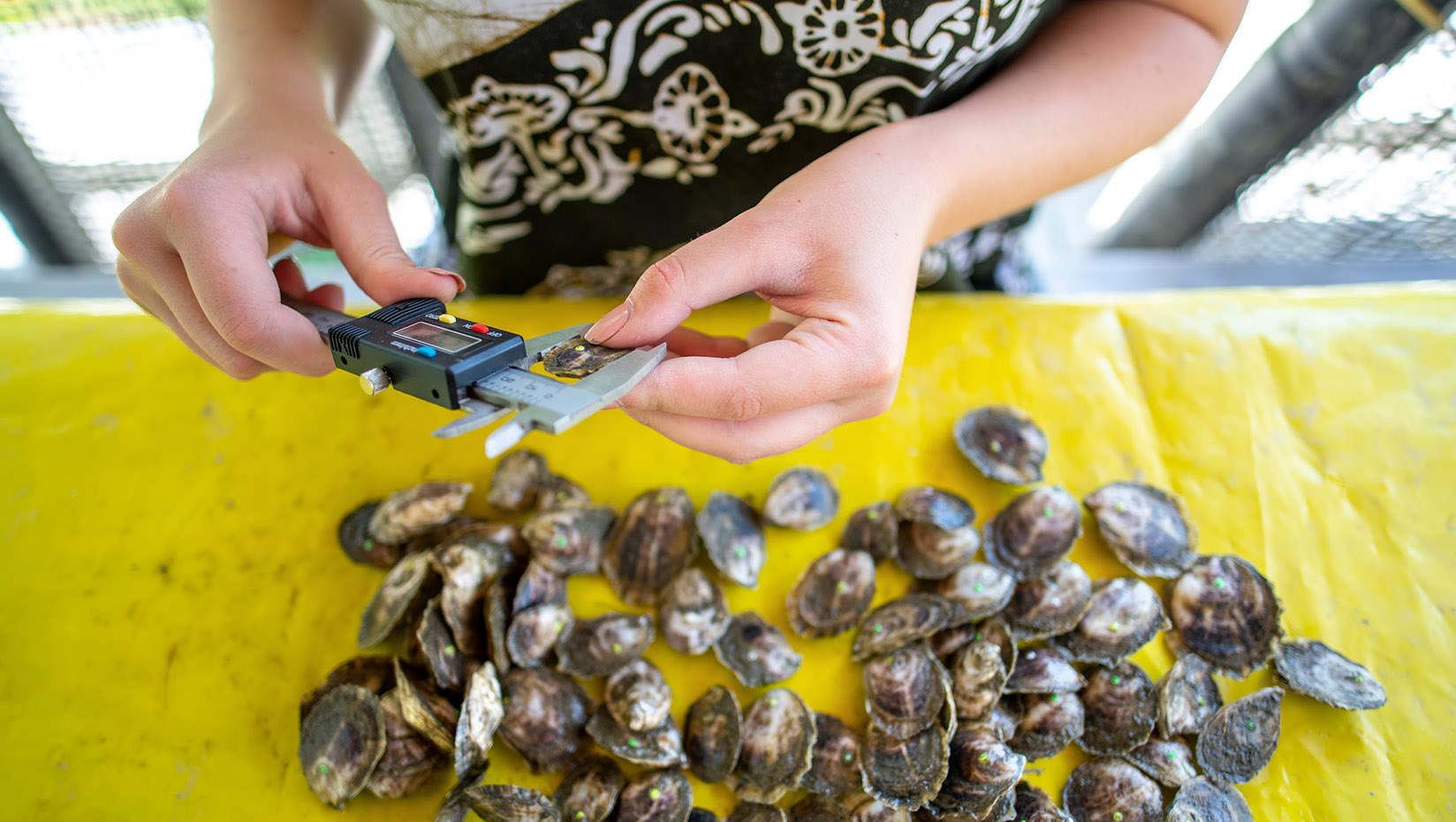
UMaine Wabanaki Center and Aquaculture Research Institute collaborate on undergraduate fellowship program
Undergraduate students from across the nation will learn about sustainable aquaculture in Maine through the lens of Indigenous science and traditional ecological knowledge in a new University of Maine initiative funded by the United States Department of Agriculture, National Institute of Food and Agriculture (NIFA).
AquEOUS: Aquaculture Experiential Opportunities for Undergraduate Students, led by the UMaine Wabanaki Center and Aquaculture Research Institute (ARI), is one of 23 USDA-funded Research and Extension Experiences for Undergraduates (REEUs) awarded this year. The UMaine fellowship program will be offered annually for five years and will ultimately include 42 students.
Students and staff will complete 10-week research projects and participate in training that enhances inclusive science communication skills, traditional ecological knowledge and field techniques.
“Aquaculture is one of Maine’s seven targeted technology areas and one of the fastest-growing food sectors in the world,” says Debbie Bouchard, director of ARI. “This rapid growth and its related research questions about sustainability and equity make Maine an ideal laboratory for studying sustainable aquaculture in the United States.”
Leveraging the Wabanaki Center’s unique relationships with Wabanaki and other Indigenous Knowledge Keepers, the AquEOUS program will improve access to experiential science training in aquaculture for a diverse cohort of undergraduates while piloting new modes of learning through traditional ecological knowledge.
“This is a unique opportunity for students to learn from elders and develop a new holistic perspective that may change the way they think about sustainability in their research,” says Donna Loring, Penobscot Nation Elder and former Maine State Representative, who will consult on the program.
The first step in this project is engagement at the tribal level, says professor Darren Ranco, chair of Native American Programs at UMaine and a member of the Penobscot Nation. “It is critical that Wabanaki communities bring their own knowledge systems, mentorship and vision to extend and enhance Native and non-native student learning,” he says.
AquEOUS also will collaborate with the Wabanaki Youth in Science (WaYS) program, which provides mentoring and training opportunities in the life sciences for Native American youth in Maine. This program, which was motivated by a shortage of young natural resource professionals on tribal lands, uses a multifaceted approach to recruit and retain native youth in STEM fields.
A defining characteristic of WaYS is the integration of Indigenous science through cultural and ecological knowledge keepers. Working with the program will broaden the impact of ARI’s programming.
“AquEOUS will embrace and weave Wabanaki knowledge, values and decision making throughout all levels of the program utilizing the WaYS educational model,” says WaYS director tish carr.
Faculty and staff will gain as much as the students through this unique opportunity, says program co-principal investigator Meggan Dwyer. “Ultimately,” she says, “we hope that this program opens a career path in aquaculture to any person who is interested.”
Contact: Meggan Dwyer, meggan.dwyer@maine.edu
